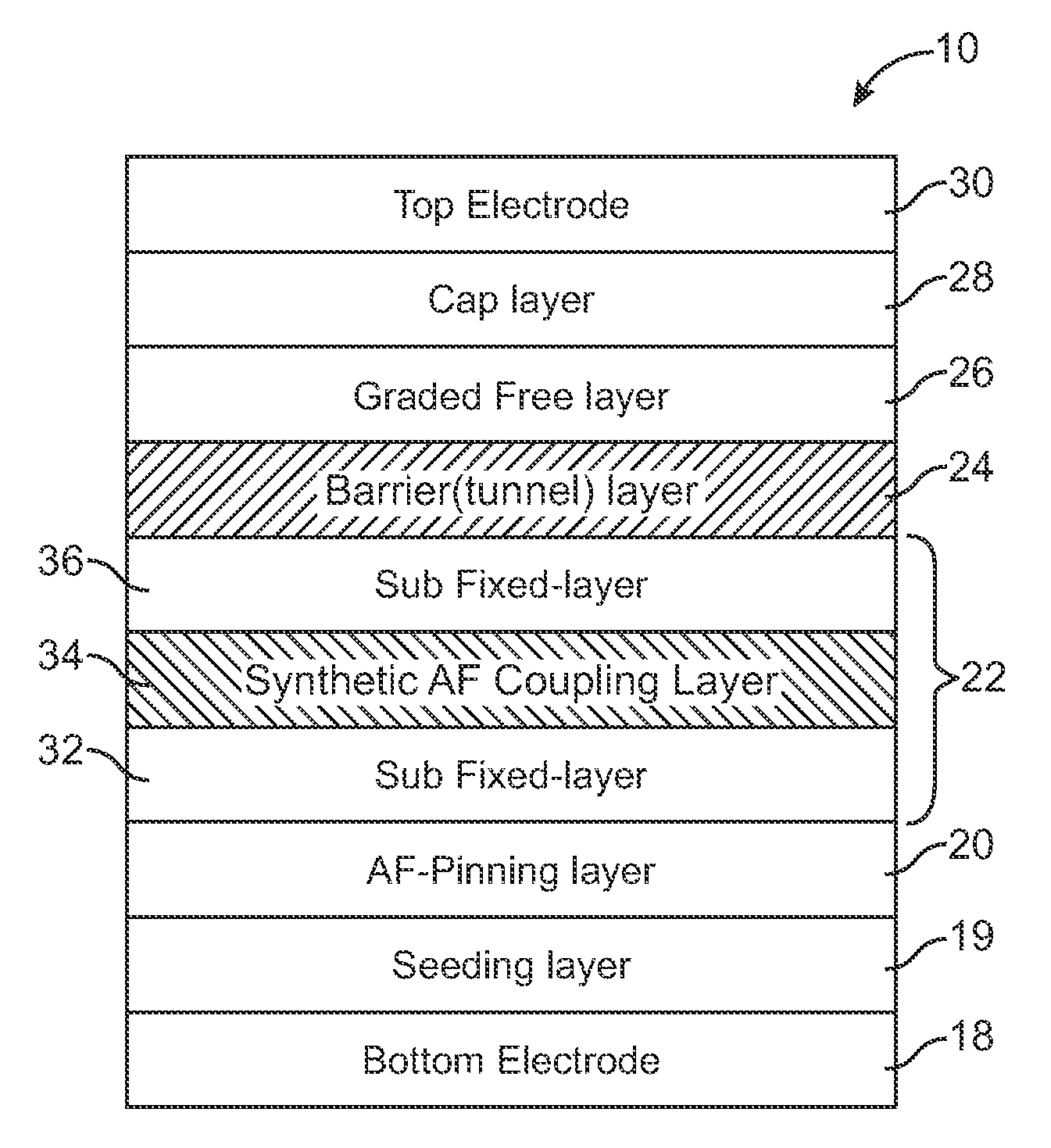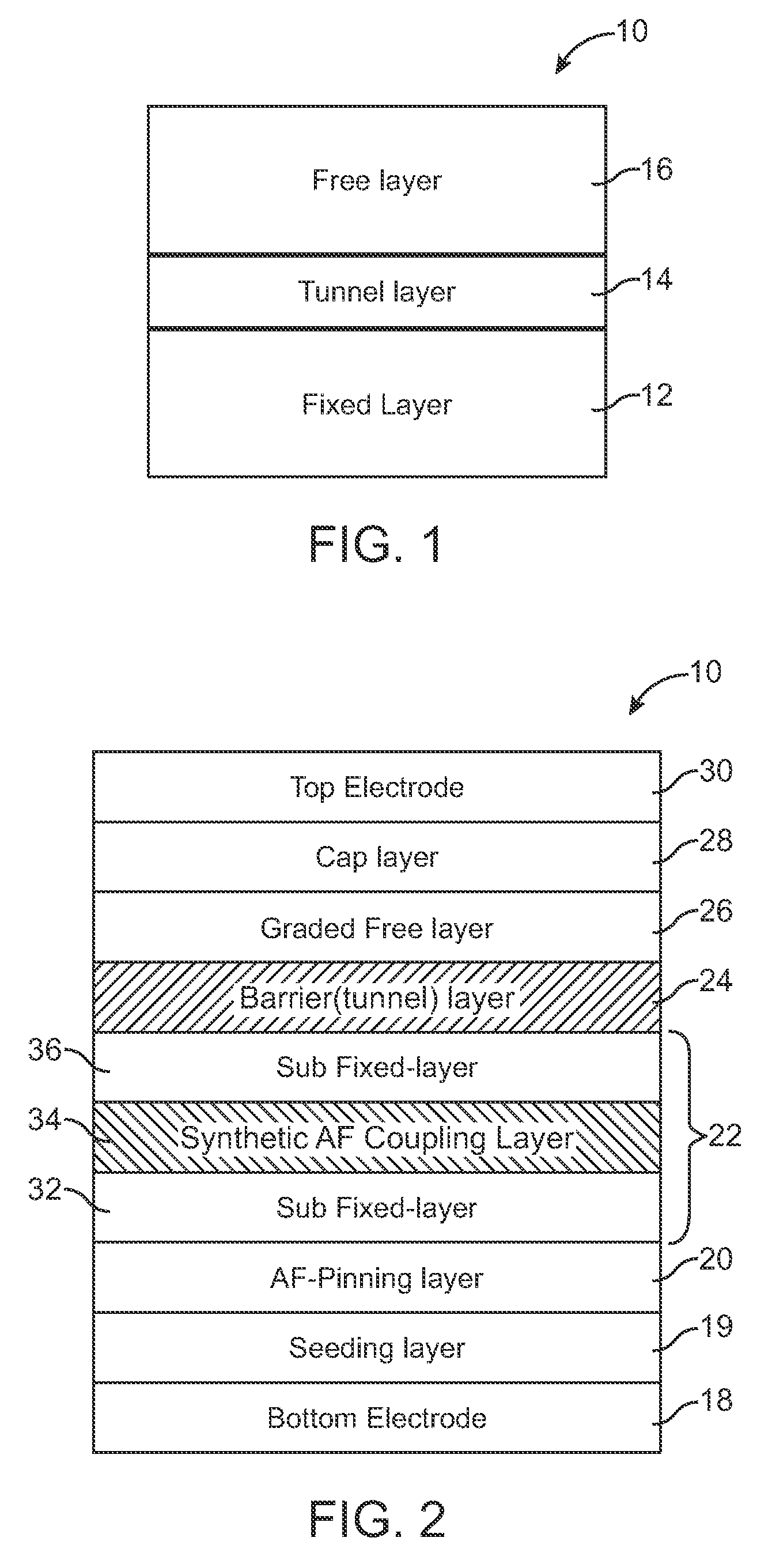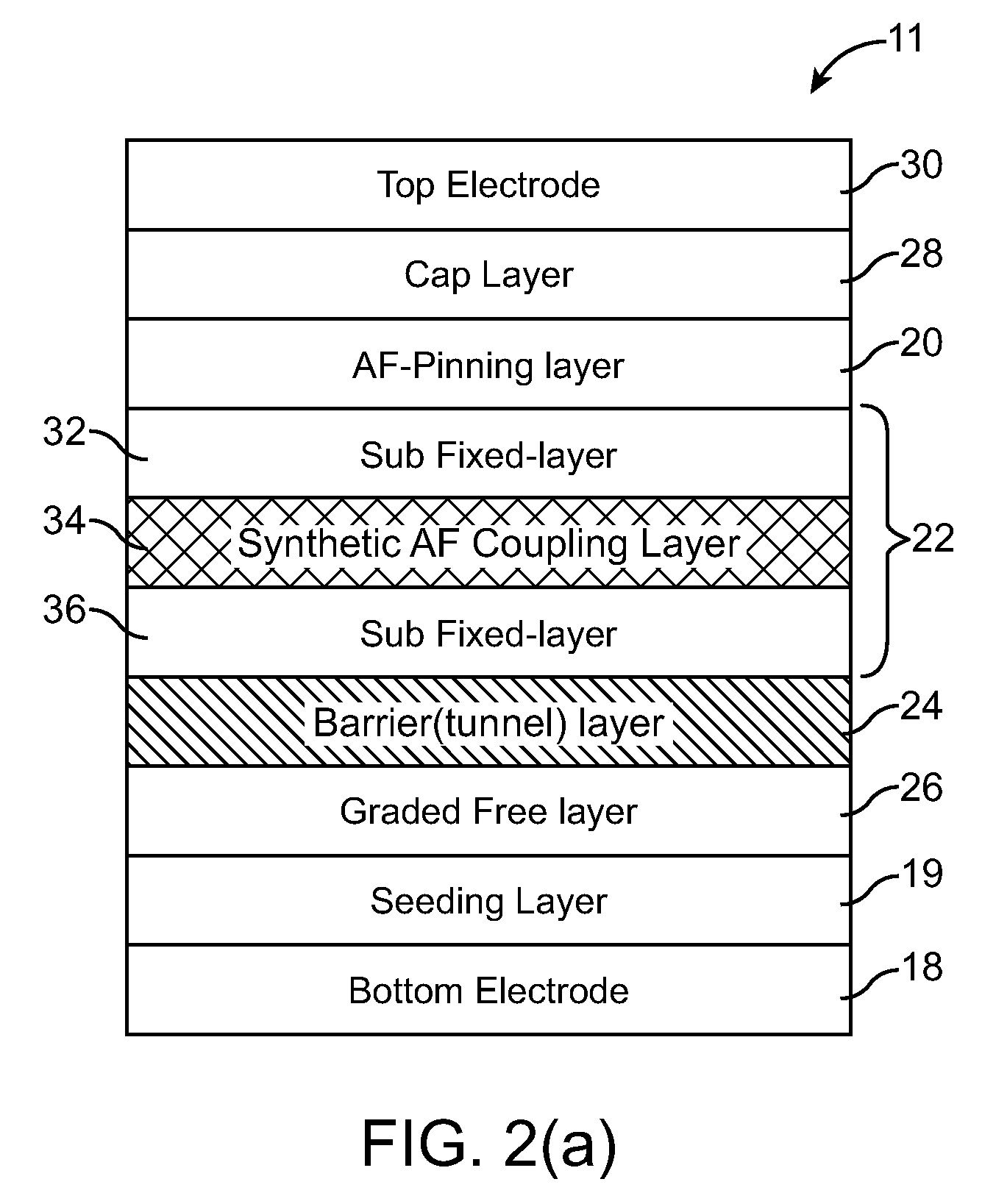Non-volatile magnetic memory element with graded layer
a magnetic memory element and non-volatile technology, applied in the field of non-volatile magnetic memory, can solve the problems of high power dissipation, large physical size, access latency, etc., and achieve the effect of reducing the switching current in the magnetic memory and high memory capacity
- Summary
- Abstract
- Description
- Claims
- Application Information
AI Technical Summary
Benefits of technology
Problems solved by technology
Method used
Image
Examples
Embodiment Construction
[0033]In the following description of the embodiments, reference is made to the accompanying drawings that form a part hereof, and in which is shown by way of illustration of the specific embodiments in which the invention may be practiced. It is to be understood that other embodiments may be utilized because structural changes may be made without departing from the scope of the present invention. It should be noted that the figures discussed herein are not drawn to scale and thicknesses of lines are not indicative of actual sizes.
[0034]In an embodiment of the present invention, a non-volatile magnetic memory element is disclosed. In one embodiment of the present invention, the memory element includes a graded fixed layer, a tunnel layer and a graded free layer, the fixed layer, tunneling layer and free layer comprising a magnetic tunnel junction (MTJ). The memory element is stackable into arrays of memory elements.
[0035]Referring now to FIG. 1, relevant layers of a non-volatile mag...
PUM
 Login to View More
Login to View More Abstract
Description
Claims
Application Information
 Login to View More
Login to View More - R&D
- Intellectual Property
- Life Sciences
- Materials
- Tech Scout
- Unparalleled Data Quality
- Higher Quality Content
- 60% Fewer Hallucinations
Browse by: Latest US Patents, China's latest patents, Technical Efficacy Thesaurus, Application Domain, Technology Topic, Popular Technical Reports.
© 2025 PatSnap. All rights reserved.Legal|Privacy policy|Modern Slavery Act Transparency Statement|Sitemap|About US| Contact US: help@patsnap.com



